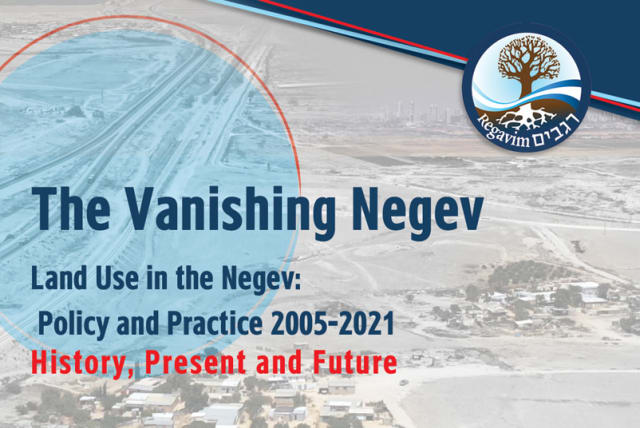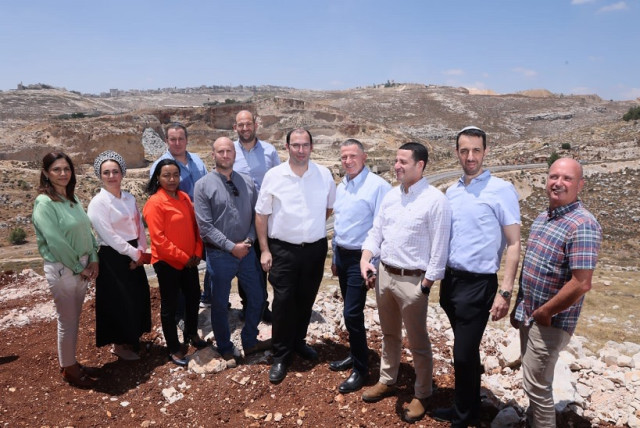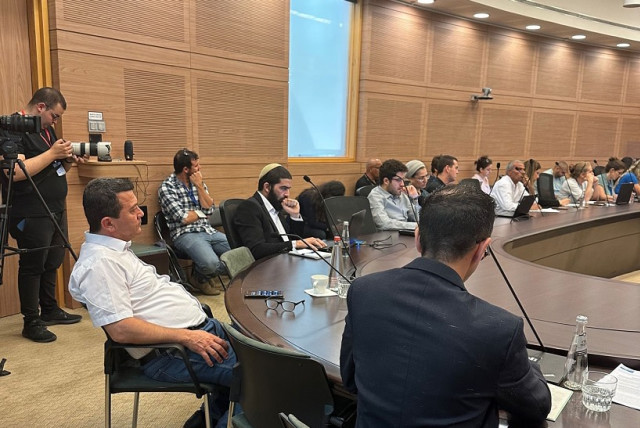Policy whisperers who have the government’s ear

The Regavim Movement was founded 17 years ago, and has made a slow, often controversial, but steady climb to its present position as a major influence on Israel’s public policy
"it is important to understand that the fight over the land of Israel did not end in 1948,” says Meir Deutsch, Director of Regavim, a non-profit organization founded in 2006 that is dedicated to the protection of Israel’s national lands and resources. “Our job is explaining to the public that the fight over the land of Israel is continuing and goes on every day. It is happening today in the plowing of fields, in the building of houses, and in the courts. It is the same fight but on different fronts.”
The Regavim Movement was founded 17 years ago, and has made a slow, often controversial, but steady climb to its present position as a major influence on Israel’s public policy - much to the chagrin of many who take issue with their agenda and methods. The Regavim Movement, says Deutsch, acts to prevent illegal seizure of state land and to protect the rule of law and clean government in matters pertaining to land use policy in the State of Israel. It is active in the public, parliamentary, and judicial spheres, through the publication of opinion and research papers and through the dissemination of reports, policy and opinion papers, media communications, and, when necessary, legal action.
Deutsch cites several major policy issues in which Regavim has been active in recent years. The first is the passage of the law that increased enforcement against unauthorized building in 2017, known as the “Kaminitz Law,” named after the deputy attorney general at the time, Erez Kaminitz. “This law gives the government the ability to enforce the building code throughout Israel, and we have seen since then a drastic change that has everything to do with enforcing these laws,” he says.
A second issue relates to Area C in Judea and Samaria and Regavim’s efforts to make the public aware of illegal Palestinian construction there. “The fact that now the Ministry of Defense is creating a plan to deal with this issue is the result of a lot of work – fieldwork, public information campaigns and legal action that raised public awareness to this huge national issue, the creation of a de facto Palestinian state as we speak,” says Deutsch. “The fact that people in Israel know about the battle for Area C is due to our work.” He explains that Regavim staff members have extensively researched this issue through mapping, aerial footage, fieldwork, and analysis, and by bringing this information to the media, have caused the government to deal with the situation.
Deutsch adds that Regavim has been active in the Negev in publicizing the serious issues that confront the residents of the area, such as illegal land grabs, illegal construction and lawlessness. “When we began in 2006,” he says, “the image people had in mind when they talked about the Bedouin in the Negev was tents and camels. Today, when we discuss the issues involving Israel’s Bedouin sector, people know that the reality is much more complicated.”
According to Deutsch, there are more than 80,000 illegal structures in the Negev. “It is not sporadic nomadic building,” he says, “but a much bigger issue.” Connecting the dots to see the bigger picture of what is happening in the Negev, he says, makes the public aware of what is going on, which causes the government to understand the real reasons and root causes of these challenges. “Regavim ‘s work is essential in providing the background for these issues,” says Deutsch.
Social Equality Minister Amichai Chikli, says Deutsch, has taken a proactive approach to resettling Bedouin in the Negev and enforcing Israeli law in the region. As well, he says, the Ministry of Defense is working actively to prevent a Palestinian takeover of Area C. “We came to the ministers and presented our ideas,” says Deutsch. “We have an open door to the ministers in charge of these issues. Government ministers and Knesset members see Regavim as the experts in land issues, a reputation we earned through hard work.”
The plan that the current government has initiated, says Deutsch, is to focus mapping, planning, and enforcement efforts on four specific areas of the Negev over the next four years.
The Regavim team is composed of fifteen members, including lawyers, field directors, media specialists, and policy experts who work with Knesset members. The organization is headquartered in Sha’ar Binyamin, and most of the staff hails from Judea and Samaria. Deutsch explains that the organization’s name – Regavim – is the Hebrew word for clumps of earth – the smallest unit of land, which is the basis for everything the organization does. The name may sound prosaic, but Regavim’s goals are noble, and are impacting Israel’s public policy and public discourse in a big way.
For more information: Regavim
This article was written in cooperation with Regavim
Jerusalem Post Store
`; document.getElementById("linkPremium").innerHTML = cont; var divWithLink = document.getElementById("premium-link"); if (divWithLink !== null && divWithLink !== 'undefined') { divWithLink.style.border = "solid 1px #cb0f3e"; divWithLink.style.textAlign = "center"; divWithLink.style.marginBottom = "15px"; divWithLink.style.marginTop = "15px"; divWithLink.style.width = "100%"; divWithLink.style.backgroundColor = "#122952"; divWithLink.style.color = "#ffffff"; divWithLink.style.lineHeight = "1.5"; } } (function (v, i) { });


